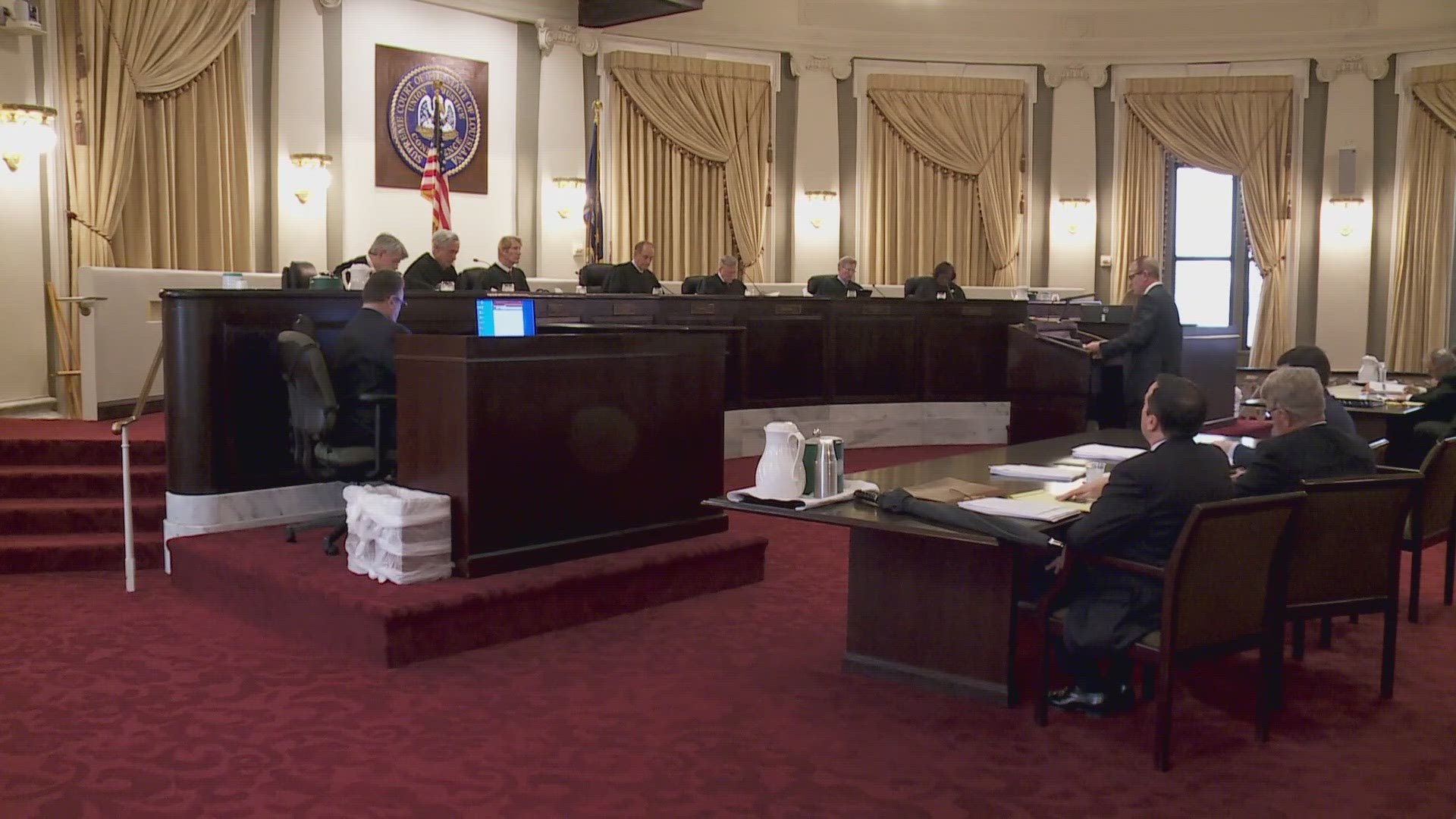NEW ORLEANS — The Louisiana Supreme Court heard a case Tuesday involving the Diocese of Lafayette that could make or break hundreds of child sexual abuse claims against the Archdiocese of New Orleans and could mean the difference of $100 million or more in the local church’s bankruptcy.
The Lafayette Diocese is challenging the constitutionality of a 2021 law, passed unanimously by the State Legislature, to retroactively eliminate the statute of limitations for filing a child sexual abuse lawsuit, as long as a civil claim is filed by June 2024.
The law is commonly called a "lookback window,” and similar legislation has been passed in states across the country.
It applies to any child sexual abuse claims, not just those against the Catholic Church and its clergy. But clergy abuse cases have taken center stage after the New Orleans archdiocese filed for bankruptcy protection in May 2020 and about 500 claims were filed alleging abuse by more than 300 New Orleans area priests over approximately six decades.
Gil Dozier argued for the Lafayette Diocese that the "lookback window" violates the constitution, by taking away the Diocese's "vested right" to not be sued once a legal deadline had passed. That legal deadline -- known in most states as a “statute of limitations” but in Louisiana as “prescription” – is a property right that essentially bars claims at the courthouse door once it expires, Dozier argued.
“The very purpose behind these vested rights is to protect them from being retroactively disturbed by the Legislature,” he said. “To allow the legislature to retroactively strip a party of vested rights would, of course, render prescription meaningless. It would create personal and financial insecurity, and worse, it would create societal instability through the loss of confidence in the law and the civil justice system.”
But then, Soren Gisleson responded for the victims, arguing that the State Legislature did something unique to help victims who, because of the nature of the injury, often don't speak out for decades.
“The Legislature came in and did this remarkable thing in a very conservative Legislature, something that maybe they've never done before,” Gisleson said. “They came in and they said, we're going to do this unbelievable thing, and we're doing it because of the uniqueness of the harm.”
Gisleson added: “It is a damaging harm that when a person grows up metastasizes and spreads throughout society, and it's something we have to stop and it's damages is something we have to mitigate.”
Gisleson said the idea of a “vested right” is not emblazoned in the Louisiana Constitution and does not give property rights any higher authority than rights under a contract. Justice Jay McCallum asked a question that could be a basis for the court to find the lookback window constitutional.
McCallum noted the right to not be sued under prescription “comes immediately from the legislature, doesn't it? And so can we paraphrase Job to say, 'That which the legislature giveth, it can also taketh away?’”
Gisleson noted that the Supreme Court invoked the state’s police powers to eliminate insurance contract deadlines to file lawsuits after Hurricane Katrina because of the unique devastation caused to that storm.
But Chief Justice John Weimer said those deadlines for insurance claims after Katrina were extended before they had expired, not decades afterwards, as the lookback window does for child molestation claims from the 1960s, 70s and 80s. Weimer and the other justices also seemed to back Dozier’s argument that undoing prescription for child sexual abuse could lead to other retroactive laws.
The stakes couldn't be higher. If the Supreme Court upholds the "lookback window," it could force the New Orleans Archdiocese to pay hundreds of millions of dollars to settle about 500 abuse claims.
But if the court finds the 2021 law unconstitutional, the church would probably be able to settle those claims for pennies on the dollar. There are several other arguments that abuse claimants could still make to keep their claims against the church and other entities alive, even if the lookback window is found unconstitutional.
That includes the argument that they were unable to act at the time of the abuse because they were children and their abuser or other adults forced them to stay quiet. But that, along with scientific arguments about repressed memories, would be far more difficult if the lookback window were removed.
► Get breaking news from your neighborhood delivered directly to you by downloading the new FREE WWL-TV News app now in the IOS App Store or Google Play.

